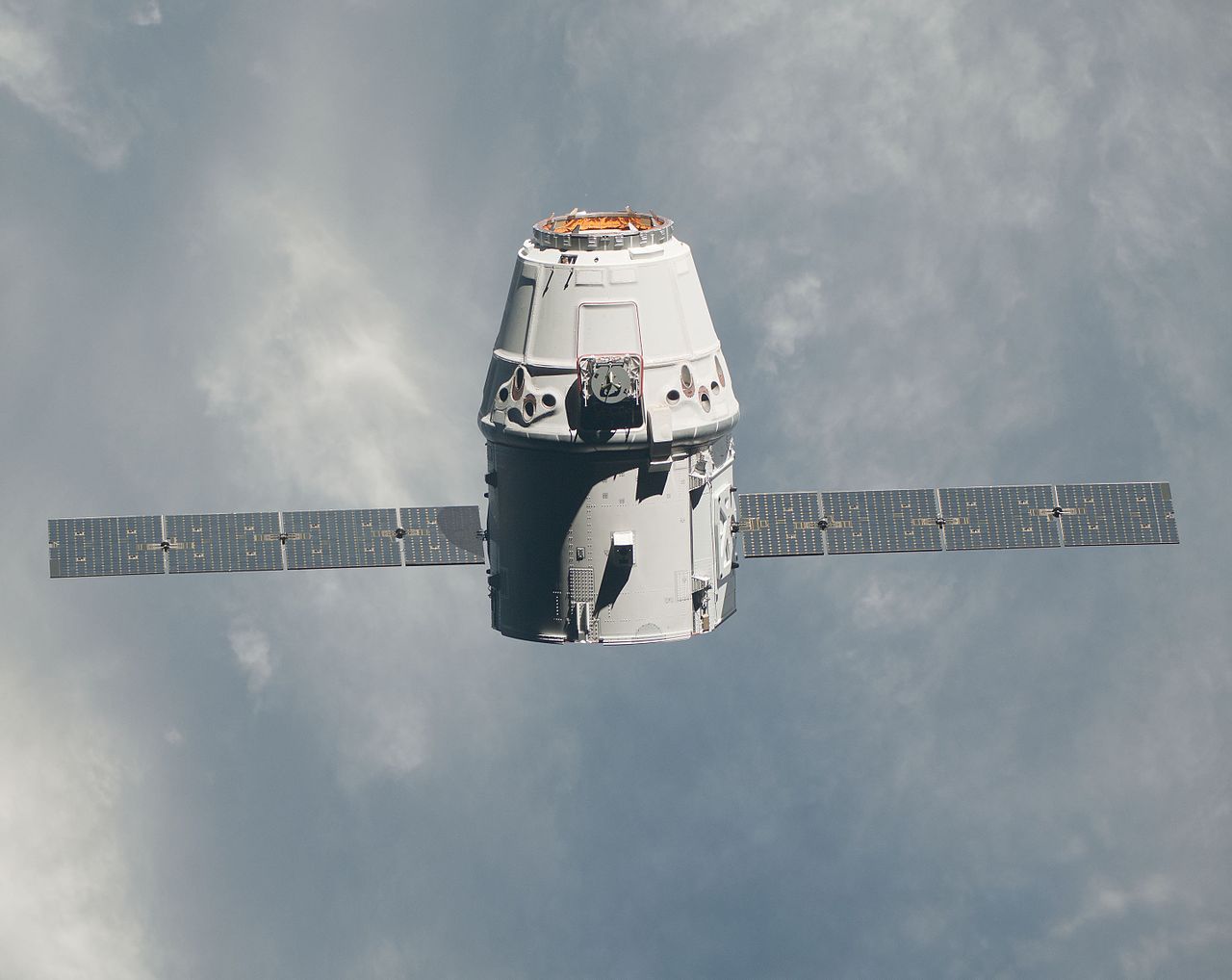Today, SpaceX was supposed to make history by launching a rocket that it had already used twice, which would have cemented the company’s name as the first space agency to have made such an achievement. Unfortunately, a nearby storm grounded the rocket. Even worse, it was supposed to carry 6,000 pounds of supplies to the International Space Station, leaving researchers residing in the orbital platform disappointed.
The original schedule for the launch was supposed to be Thursday, 2.55 PM, Pacific Time, The Los Angeles Time. The Falcon 9 was meant to take the previously used Dragon spaceship to orbit, where it would have docked with the ISS to deliver supplies that are needed to conduct experiments. As SpaceX Vice-President of mission assurance, Hans Koenigsmann said, nearly everything about the rocket and ship was reusable.
“The majority of this Dragon has been in space before,” Koenigsmann told the press before the scheduled launch.
SpaceX has decided to reschedule the flight for Saturday, instead, at 2:07 PM, Pacific Time. It will still launch from Florida’s Kennedy Space Center.
Now, there are a few things to note about this particular flight that is very important to Elon Musk’s space company. For one thing, it would be the first supply delivery to the ISS using a reused rocket and ship. This would have a considerable effect on how space travel is done, with significantly reduced expenses being a major deal.
There’s also the matter of the particular experiments that researchers at the station are conducting, which directly impact the ambitions of SpaceX. Zaven Arzoumanian is one of the researchers onboard the ISS right now who is studying the navigational potential of neutron stars. If successful, this would have a huge significance to space travel as a whole, CBS News reports.
"You can imagine having a system of clocks, very accurate clocks, distributed all over the sky,” Arzoumanian said. “... So in the same way that we use atomic clocks on GPS satellites to navigate our cars on the surface of the Earth, we can use these clock signals from the sky, from pulsars, to navigate spacecraft anywhere in the solar system."



 Anthropic Eyes $350 Billion Valuation as AI Funding and Share Sale Accelerate
Anthropic Eyes $350 Billion Valuation as AI Funding and Share Sale Accelerate  SoftBank Shares Slide After Arm Earnings Miss Fuels Tech Stock Sell-Off
SoftBank Shares Slide After Arm Earnings Miss Fuels Tech Stock Sell-Off  Alphabet’s Massive AI Spending Surge Signals Confidence in Google’s Growth Engine
Alphabet’s Massive AI Spending Surge Signals Confidence in Google’s Growth Engine  AMD Shares Slide Despite Earnings Beat as Cautious Revenue Outlook Weighs on Stock
AMD Shares Slide Despite Earnings Beat as Cautious Revenue Outlook Weighs on Stock  SoftBank and Intel Partner to Develop Next-Generation Memory Chips for AI Data Centers
SoftBank and Intel Partner to Develop Next-Generation Memory Chips for AI Data Centers  Elon Musk’s Empire: SpaceX, Tesla, and xAI Merger Talks Spark Investor Debate
Elon Musk’s Empire: SpaceX, Tesla, and xAI Merger Talks Spark Investor Debate  SpaceX Prioritizes Moon Mission Before Mars as Starship Development Accelerates
SpaceX Prioritizes Moon Mission Before Mars as Starship Development Accelerates  Nvidia CEO Jensen Huang Says AI Investment Boom Is Just Beginning as NVDA Shares Surge
Nvidia CEO Jensen Huang Says AI Investment Boom Is Just Beginning as NVDA Shares Surge  Nvidia, ByteDance, and the U.S.-China AI Chip Standoff Over H200 Exports
Nvidia, ByteDance, and the U.S.-China AI Chip Standoff Over H200 Exports  Instagram Outage Disrupts Thousands of U.S. Users
Instagram Outage Disrupts Thousands of U.S. Users  Sony Q3 Profit Jumps on Gaming and Image Sensors, Full-Year Outlook Raised
Sony Q3 Profit Jumps on Gaming and Image Sensors, Full-Year Outlook Raised  Jensen Huang Urges Taiwan Suppliers to Boost AI Chip Production Amid Surging Demand
Jensen Huang Urges Taiwan Suppliers to Boost AI Chip Production Amid Surging Demand  Amazon Stock Rebounds After Earnings as $200B Capex Plan Sparks AI Spending Debate
Amazon Stock Rebounds After Earnings as $200B Capex Plan Sparks AI Spending Debate  OpenAI Expands Enterprise AI Strategy With Major Hiring Push Ahead of New Business Offering
OpenAI Expands Enterprise AI Strategy With Major Hiring Push Ahead of New Business Offering  Oracle Plans $45–$50 Billion Funding Push in 2026 to Expand Cloud and AI Infrastructure
Oracle Plans $45–$50 Billion Funding Push in 2026 to Expand Cloud and AI Infrastructure  Baidu Approves $5 Billion Share Buyback and Plans First-Ever Dividend in 2026
Baidu Approves $5 Billion Share Buyback and Plans First-Ever Dividend in 2026 































